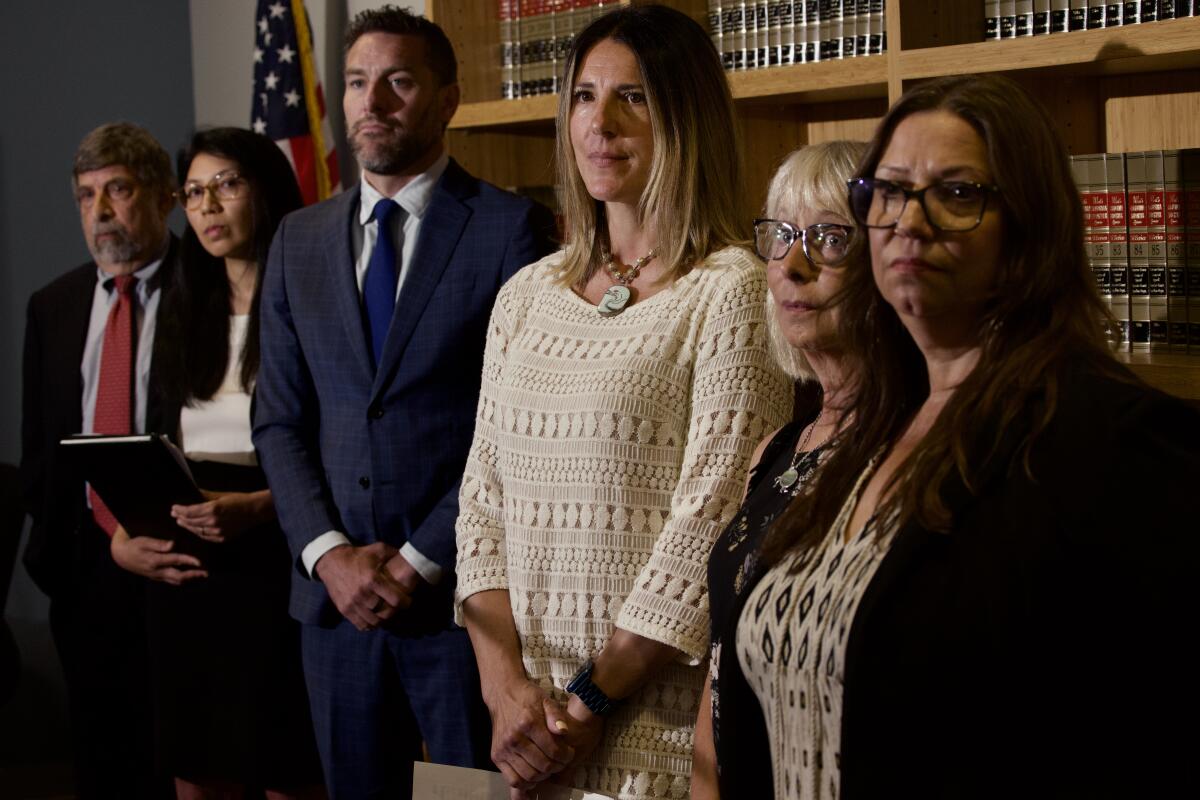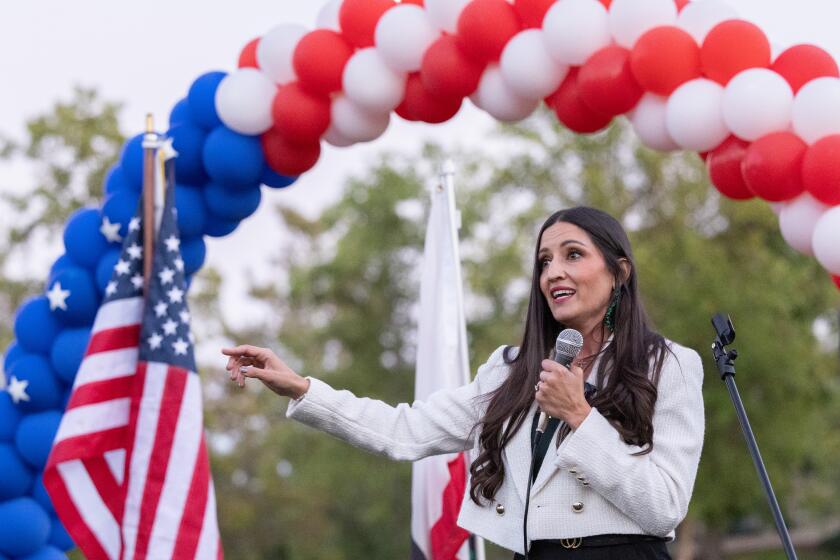Critical race theory ban at Temecula Valley Unified stands for now, judge rules

- Share via
Temecula Valley Unified School District’s decision to block critical race theory instruction in its classrooms will continue for now, a Riverside County Superior Court judge ruled Friday.
A group of parents, students and teachers had sought a preliminary injunction to block the school board’s policy that prohibited teaching critical race theory, a legal framework taught at some universities that examines how racial inequality and racism are systemically embedded in American institutions.
The request for an injunction came as part of a lawsuit filed against the district in August, which alleged the conservative board’s ban on the curriculum was vague and violates the California Constitution’s guarantee of a “fundamental right” to an education that is “basically equivalent to that provided elsewhere throughout the state.”
Attorney Amanda Mangaser Savage, who represents the parents, teachers and students, argued that the board’s policy had already led to confusion among teachers about what they could discuss in class.
But on Friday, Judge Eric Keen denied the request, rejecting the argument that the district’s policy was unclear. He wrote in an eight-page ruling that the board’s resolution sets out the specific elements of critical race theory that can’t be taught. Keen added that the resolution limits instruction on critical race theory to a “subordinate role within a larger instructional framework” and one that focuses on the “flaws” of the curriculum.
“It seems clear to the court that a person of ordinary intelligence would have a reasonable opportunity to know what is prohibited as what is prohibited is set out specifically in the resolution,” he wrote.
The action takes the battle over teaching about racism to state civil court and, if the ban is overturned, could have a sweeping effect in California.
Keen also weighed in on a controversial parental notification policy that requires district staff to tell parents when their child is requesting to be identified as a different gender or use a name that’s different from their legal name.
He wrote that the policy applies equally to all students in the district, is “gender neutral” and “does not expressly single out transgender or gender-nonconforming students, as it applies to any student’s request to change their school official or unofficial records.”
Mangaser Savage called Friday’s ruling a “disappointing result for students.” The group plans to appeal it, she said.
“Right now we have students who are sitting in classrooms and receiving an education that is really tainted by the board’s physiological censorship and by the board’s anti-LGBTQ and sort of racial animus,” she said.
A representative for Temecula Valley Unified could not be reached for comment Friday.
The battle began in December 2022 when the conservative majority on the school board passed a resolution that prohibited the instruction of critical race theory, which is rarely taught in non-university settings but has become a rallying point for critics who want to limit discussions on racism.
In the resolution, the district states its goal is “to uplift and unite students by not imposing the responsibility of historical transgressions of the past.” The resolution asserts that critical race theory is “an ideology based on false assumptions about the United States of America and its population.” Schools in the district had not taught critical race theory before the policy was enacted.
In July, the district grabbed headlines again when it rejected proposed instructional material that mentioned Harvey Milk, a San Francisco supervisor and the first out gay man elected to public office in California, who was assassinated in 1978.
Temecula Valley Unified board President Joseph Komrosky called Milk a “pedophile” during a board meeting. In a Twitter post, Gov. Gavin Newsom fired back, calling Komrosky “ignorant.”
Newsom later threatened to fine the district $1.5 million for its refusal to adopt compliant textbooks. He said the state would purchase the books for the district anyway.
As board president of Chino Valley Unified, Sonja Shaw has catapulted from soccer mom to the face of California’s parental rights movement. She’d say it’s part of God’s plan.
In August, the district faced further scrutiny when it approved its transgender notification policy. Supporters of such policies, which have also been implemented in districts in Chino Valley and Murrieta Valley, have argued that parents have a right to know what’s happening with their child.
However, critics have said it could lead to students being abused or abandoned by parents who don’t accept their child’s gender identity.
“It’s really troubling to us that Temecula now is in the same bucket as jurisdictions like Texas and Florida, where politics is really driving what students have access to in public school classrooms,” Mangaser Savage said.
More to Read
Sign up for Essential California
The most important California stories and recommendations in your inbox every morning.
You may occasionally receive promotional content from the Los Angeles Times.













